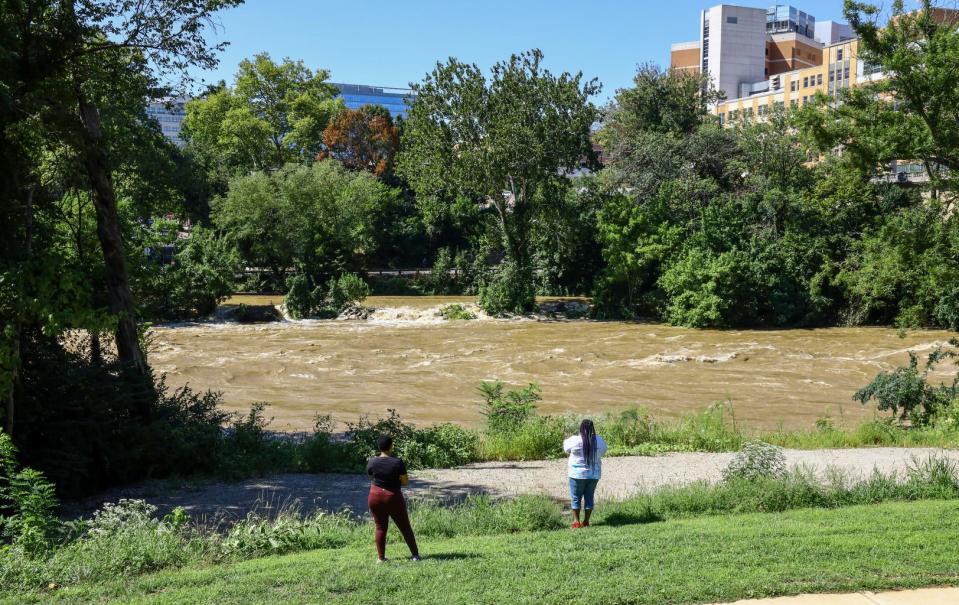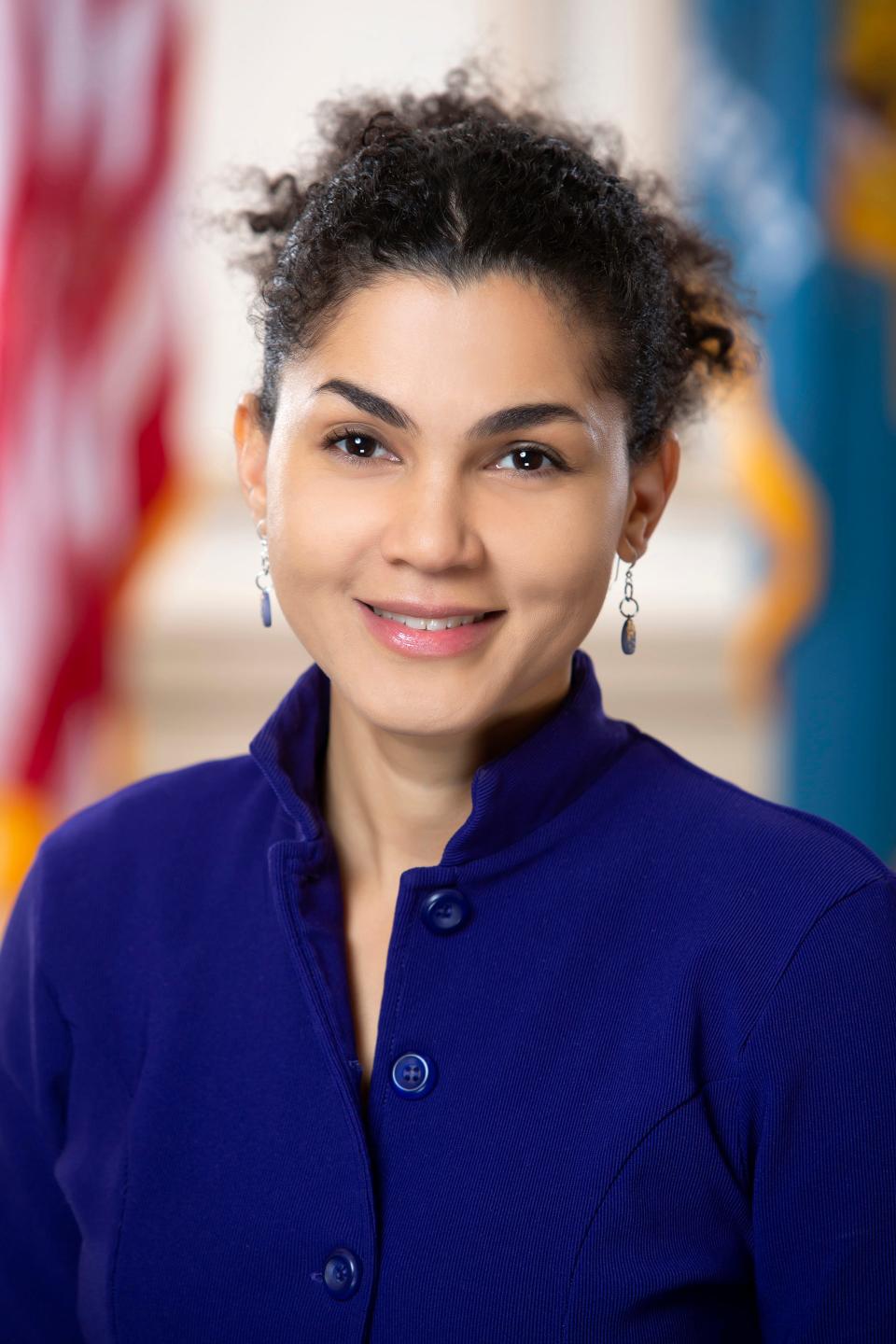This is why we have to hold Big Oil accountable for the climate crisis in Delaware
Extreme heat. Smoked filled skies. Violent storms and deadly flash floods. Record-breaking ocean temperatures.Clear signs of a worsening climate crisis seem to be everywhere this summer, along with the threats they pose to the health and safety of our family, friends and neighbors.
Make no mistake, the risk to our communities is real. A recent study by Moody’s Analytics found that Delaware faces one of the highest threats of disaster due to climate change behind only Florida, Louisiana and the Carolinas. We are also the fourth-fastest warming state — tied with Arizona, which is home to the Sonoran Desert.
Predictably, the Environmental Protection Agency also recently confirmed what the residents of Delaware’s historically underserved communities have long suspected: it’s communities of color who face the greatest risk from climate change.

Black families are already at greater risk of seeing their children develop asthma, being forced from their homes due to flooding and losing a loved one due to extreme heat — all of which will only worsen as the climate warms.Wilmington is in the Top 10 of Moody’s ranking of U.S. cities facing the greatest chronic physical risk, just behind Phoenix and Tucson.
Wilmington is currently seeing 7 more days a year of temperatures above 90 degrees than it did 50 years ago, and storms like Hurricane Ida, which forced 200 Wilmington residents from their homes just two years ago, are becoming more common.
How we got here is obvious: fossil fuel companies polluted our climate, air, and water for decades, while spreading disinformation about their products and fighting clean energy alternatives. Even now as we suffer through record-high temperatures, they are raking in billions of dollars in record-high profits.
Thanks to Attorney General Kathy Jennings, Delaware is helping lead the charge in holding these polluters accountable. In 2020, the attorney general’s office filed a potentially landmark lawsuit against more than two dozen major oil and gas companies — including ExxonMobil, BP, Shell, and Chevron — to make them “pay for the mess they’ve made.” Our state’s fight to put these companies on trial won a major boost recently, when the U.S. Supreme Court turned down Big Oil’s request to stop the case from moving forward in state court, where a jury of Delaware residents would hear it.
More: They struggled during Ida. Now one Wilmington community is finding a better way to respond
More: She narrowly missed being hit by tree that came through her bedroom window in Monday storm
More perspective: This bipartisan bill will account for industrial carbon emissions — and help Delaware
While Delawareans deserve our day in court to hold Big Oil accountable for cleaning up the mess they caused, there is work we can do now to address the harm that has already occurred.
As chair of the African American Task Force’s Infrastructure and Environment Subcommittee, I led a team of elected leaders, state experts and community members to develop a series of recommendations on how we can give long-ignored communities a greater say in their futures and direct resources to promote environmental justice throughout our state.
In June, the Delaware Legislative Black Caucus sponsored legislation to require that all qualified development projects proposed in underserved communities must undertake substantial community outreach before the first permit is awarded.
The Delaware Department of Natural Resources and Environmental Control recently created an environmental justice administrator position to serve as a liaison between historically underserved communities and the state’s lead environmental agency.
My colleagues and I are working with DNREC to stand up a panel of community members and environmental justice experts capable of advising the State of Delaware on how best to address current and historic injustices, much like the White House Environmental Justice Advisory Council at the federal level.
And we are having ongoing discussions with DNREC about the penalties and fines they hand down to polluters to ensure those sanctions better reflect the total impact and costs of violations.
We all want and deserve a clean, safe and healthy environment.
Getting there will take a strong legal strategy to hold polluters accountable, as well as an intentional and concerted effort to reach the communities most directly impacted by damage they have caused.
State Sen. Elizabeth “Tizzy” Lockman represents the Third Senate District, which encompasses communities in central and west Wilmington and reaches into New Castle County to the south, including portions of Newport. Elected by her peers as the Senate Majority Whip, she chairs the Senate Housing and Land Use Committee and serves on the Senate Environment, Energy and Transportation Committee.

This article originally appeared on Asbury Park Press: Delaware climate change: Hold Big Oil accountable

